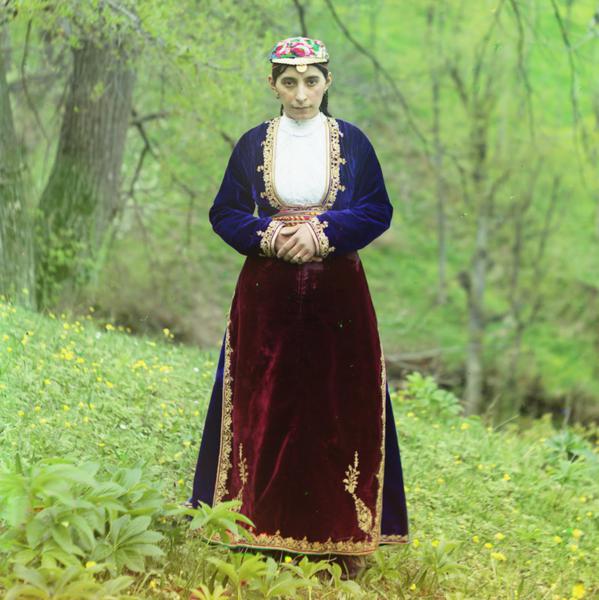
Women, Gender, and Sex in the Ottoman World
Ottoman History Podcast
"Women, Gender, and Sex in the Ottoman World" is a series of podcasts that pulls together women’s history and the history of gender and sex in the Ottoman Empire and beyond. It explores the particular historical experiences of women and girls based on the conviction that returning the lives, experiences, and ideas of women to the historical record will change the way we look at historical periods and transformations at large. It also investigates the ways in which gender and sexuality can serve as useful categories of historical analysis (Scott, 1986) as they help us to better understand broad transformations in regimes of knowledge and politics, relations of property, forms of governance, and the nature of the state. (podcast image by Russian photographer Prokudin-Gorskiĭ of Armenian woman in Artvin ca. 1905-1915 courtesy of US Library of Congress http://www.loc.gov/pictures/item/prk2000001172/)
- Gender, Capitalism, and Democracy in Modern Arab Thought
with Susanna Ferguson hosted by Chris Gratien | What does the history of modern Arab political thought look like from the perspective of women authors? In this podcast, we sit down with longtime Ottoman History Podcast contributor Susanna Ferguson to explore this question, which animates her new book Labors of Love: Gender, Capitalism, and Democracy in Modern Arab Thought. Previous scholarship has focused on the role of women in discussing the roles of women, but as Prof. Ferguson argues, women writers of the 19th and 20th century can also be studied as producers of social theory and commentators on the important matters of their era. In our conversation, we use the lens of public discourse about child-rearing or tarbiyah as a window onto ideas about a wide range of topics, including morality, labor, and democratic governance. In doing so, we consider the importance of seeing the Arab world as a source of portable ideas about modern society, as opposed to a merely passive recipient of Western modernity. « Click for More »30 September 2024, 8:00 pm - Paraskevi Kyrias, Albania, and the US at the Paris Peace Conferencewith Nevila Pahumi hosted by Susanna Ferguson | In 1919, Paraskevi Kyrias went to Paris to advocate for Albanian independence. As a woman in the overwhelmingly masculine space of international diplomacy, she faced sexism and unwanted romantic overtures. Nevertheless, she called on her connections within a global Protestant community, her life in diaspora in the United States, and her experiences at the elite Constantinople Girls' School to play a unique role in the Albanian campaign for independence after World War I. In this episode, we speak with Dr. Nevila Pahumi about Kyrias' story, her leadership of the early Albanian women's movement, and the diary of her experiences in Paris she left behind. We also trace the history of this remarkable woman after 1919, as she and her family were repudiated by a secularizing Albanian state determined to exise Protestant activism from their national history -- until she was once again remade as a feminist icon in the last years of her life. « Click for More »21 January 2021, 9:00 pm
- Freedom and Desire in Late Ottoman EroticaEpisode 448
with Burcu Karahan hosted by Suzie Ferguson
Download the podcast
Feed | iTunes | GooglePlay | SoundCloud
"One Thousand Kisses," "Plate of Cream," "Story of a Lily:" these are some of the provocative titles that graced the covers of Ottoman erotic novels in the early decades of the twentieth century. While erotic fiction and poetry had a long history in Ottoman and Arabic manuscript culture, the erotic novels of the second constitutional period (1908-1914), some creatively adapted from French originals, emerged in a period of unprecedented freedom for writers. Yet the novels themselves were often less explicit and transgressive than their their titles might suggest. In this episode, Burcu Karahan shows how, in late Ottoman fiction, stories about sex and desire celebrated not only sexual freedom, but also conservative fantasies about male sexual power and the power of heterosexual love.
« Click for More »7 February 2020, 3:03 am - Osmanlı İstanbul'unda Evlilik ve BoşanmaBölüm 437
Leyla Kayhan Elbirlik Sunucu Can Gümüş
Podcast'i indir Feed | iTunes | GooglePlay | SoundCloud
Osmanlı'da çiftler nasıl evlenir, nasıl boşanırdı? Bu podcast'te Leyla Kayhan Elbirlik ile İstanbul Bab, Davud Paşa ve Ahi Çelebi mahkemelerinin 1755-1840 yıllarındaki kayıtlarını inceleyerek tamamladığı doktora araştırması odağında, Osmanlı İstanbul'unda evlilik ve boşanma davaları üzerine sohbet ediyoruz. Elbirlik'in araştırması, kadınların evlilik, boşanma ve mülkiyetle ilişkili konularda mahkemeleri aktif olarak kullandıklarını gösterirken, Osmanlı ailesinde ve toplumunda kadının rolüne dair yaygın kanıları da yeniden değerlendiriyor. « Click for More »29 November 2019, 11:16 pm - Population and Reproduction in the Late Ottoman EmpireEpisode 421
with Gülhan Balsoy and Tuba Demirci hosted by Suzie Ferguson
Download the podcast
Feed | iTunes | GooglePlay | SoundCloud
How did the experience of pregnancy and childbirth change in the Ottoman Empire in the context of nineteenth-century reforms? In this episode, we discuss how the question of managing a "population" become a key concern for the Ottoman state, bringing new opportunities and difficulties for Ottoman mothers and midwives alike. Questions about childbirth also became enmeshed in late-imperial demographic and cultural anxieties about the relationship between the Empire and its non-Muslim populations. As pregnancy and childbirth drew the attention of medical men, state bureaucrats, and men and women writers in the emerging periodical press, new technologies, regulations, and forms of medical knowledge changed what it meant to give birth and raise a child.
« Click for More »7 August 2019, 9:45 am - The Story Has ItEpisode 419
with İpek Hüner Cora hosted by Işın Taylan
Download the podcast
Feed | iTunes | GooglePlay | SoundCloud
Ottoman literature is heavily associated with verse, namely, Ottoman court poetry, and to some extent, folk literature. Ottoman stories, however, remain unexplored, even though they circulated in the empire and entertained many. For us, today, they are an invaluable source to study daily life, gender and space in the early modern Ottoman world. What is an Ottoman story? What do Ottoman stories tell us? In this episode, İpek Hüner Cora joins the podcast to talk about fictional prose stories in the Ottoman Empire and we discuss the gendered and spatial aspects of stories scattered in manuscript collections.
« Click for More »18 July 2019, 5:09 am - Osmanlı'da Kadınlar ve Mimarlık ÜretimiBölüm 384
Muzaffer Özgüleş
Sunucu: Can Gümüş
Podcast'i indir
Feed | iTunes | GooglePlay | SoundCloud
Toplumsal cinsiyet bakış açısının son birkaç on yılda Osmanlı tarih yazımına yaptığı müdahaleler, saray kadınlarının imar faaliyetlerinde üstlendiği rolün giderek daha çok araştırılmasına da vesile oldu. Muzaffer Özgüleş’i konuk ettiğimiz bu bölümde, Sultan IV. Mehmed’in hasekisi, Sultan II. Mustafa ve Sultan III. Ahmed’in validesi Gülnuş Emetullah Sultan’ın imar faaliyetlerini detaylandırırken kadın baniler odağında kent, mimarlık üretimi ve toplumsal cinsiyet ilişkisini değerlendiriyoruz.
« Click for More »9 October 2018, 11:27 pm - Mihri Rasim Between Empire and NationEpisode 378
with Özlem Gülin Dağoğlu hosted by Sam Dolbee and Shireen Hamza
Download the podcast
Feed | iTunes | GooglePlay | SoundCloud
Many myths have accompanied the life of Mihri Rasim, but few are as interesting as her life itself. Born to a wealthy family in Istanbul in the late Ottoman period, Mihri Rasim became a politically connected painter, living in Italy for several years on her own and then Paris, where she played a key role in the salons of Ottoman dissidents known as the Young Turks. In the wake of the 1908 Constitutional Revolution, she returned to Istanbul, and opened the Fine Arts School for Women in Istanbul, where she went on to teach. After the war, she went to Italy, and then the United States, where she continued her work painting and teaching. In addition to many self-portraits, she also painted various powerful figures, among them Mustafa Kemal, Mussolini, and Thomas Edison. Listen for a discussion of art, gender, and migration in a period of momentous political change.
« Click for More »14 September 2018, 1:17 am - The Sultan's EunuchEpisode 369
with Jane Hathaway hosted by Sanja Kadrić and Emily Neumeier
Download the podcast Feed | iTunes | GooglePlay | SoundCloud
For more than three centuries, a cadre of African eunuchs were responsible for guarding the Ottoman harem at the imperial palace in Istanbul. The head of this group, the Chief Harem Eunuch, emerged as an extremely influential individual at the court. This was especially true during the crisis years of the long seventeenth century, when the palace became divided along ever-shifting lines of political factions. In this episode, we trace the long trajectory of the office of Chief Harem Eunuch, from its establishment—coinciding with the sultan’s decision to begin residing full-time in the harem—until the ultimate demise of the empire. In particular, we highlight the high degree of mobility for these eunuchs, beginning with their initial journey from Ethiopia to the shores of the Bosphorus, and later on using their position to maintain strong ties to Cairo as well as the Holy Cities of Mecca and Medina. A liminal figure in every sense of the word—in terms of gender, race, and his duties at the court—the Chief Harem Eunuch offers unique insights into the nature of political life at the Ottoman palace.
« Click for More »5 August 2018, 7:40 am - Love Poems of an Ottoman Woman: Mihrî HatunEpisode 357
with Didem Havlioğlu hosted by Chris Gratien
Download the podcast
Feed | iTunes | GooglePlay | SoundCloud
What did it mean to be a woman in the intellectual world of early modern Islamic empires? In this episode, our guest Didem Havlioğlu offers one answer to this question through the life and works of Mihrî Hatun, an Ottoman woman from 15th-century Amasya whose poetry survives to this day. Mihrî was unique within the male-dominated sphere of early modern love poetry, and as we discuss in this podcast, her position as a woman was integral to her poetry and its meaning. These poems and the relationships of this exceptional writer are the subject of Havlioğlu's new book entitled Mihrî Hatun: Performance, Gender-Bending, and Subversion in Ottoman Intellectual History (Syracuse University Press).
« Click for More »12 April 2018, 2:15 am - Industrial Sexualities in Twentieth-Century EgyptEpisode 350
with Hanan Hammad hosted by Susanna Ferguson and Seçil Yilmaz
Download the podcast
Feed | iTunes | GooglePlay | SoundCloud
In this episode, we discuss the emergence of new masculinities, femininities, and visions of "good sex" in Egypt's al-Mahalla al-Kubra, a city in the Nile Delta that became one of the main centers of industrial production and manufacturing in the early twentieth century. How did men and women who came to al-Mahalla to work in the factory, run boardinghouses, and perform other forms of labor negotiate the coercive hierarchies of industrial capitalism in their daily and intimate lives? What can we learn about modes of existence and resistance from considering their experiences, and how do the stories of working-class men and women challenge or nuance the more well-known accounts of gender and family in Egypt that have been based on the middle-class press?
« Click for More »5 March 2018, 7:04 pm - More Episodes? Get the App
Your feedback is valuable to us. Should you encounter any bugs, glitches, lack of functionality or other problems, please email us on [email protected] or join Moon.FM Telegram Group where you can talk directly to the dev team who are happy to answer any queries.
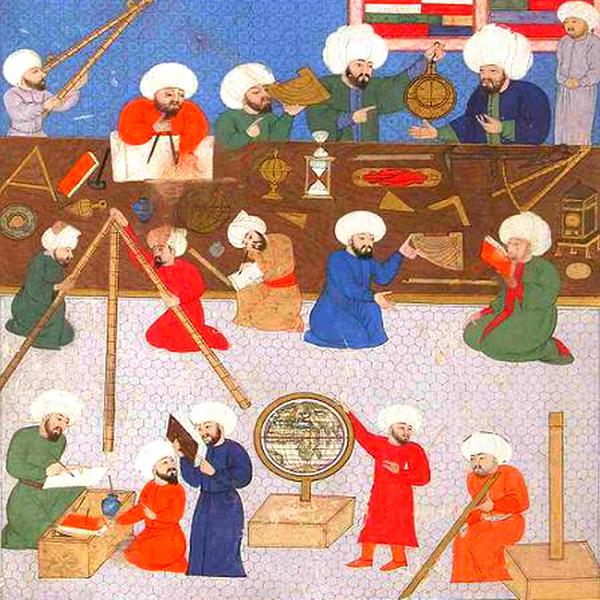 History of Science, Ottoman or Otherwise
History of Science, Ottoman or Otherwise
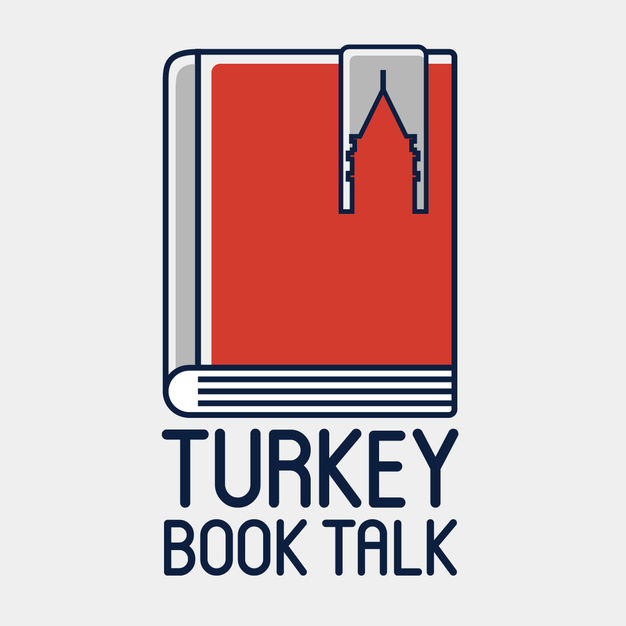 Turkey Book Talk
Turkey Book Talk
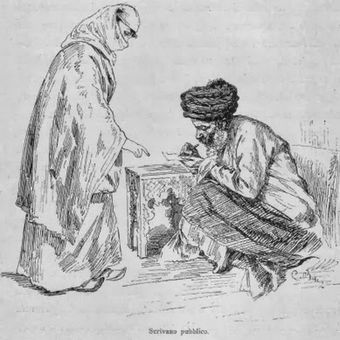 Continuity and Transformation in Islamic Law
Continuity and Transformation in Islamic Law
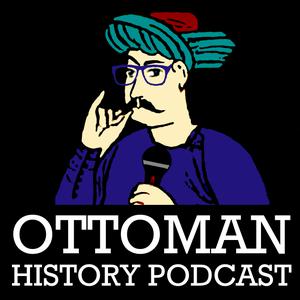 Ottoman History Podcast
Ottoman History Podcast